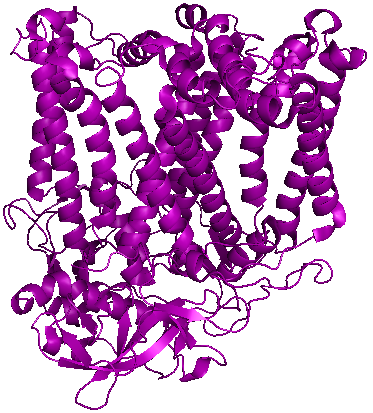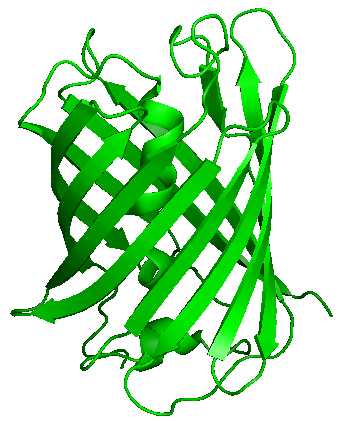

Photosynthetic reaction center (left) and green fluorescent protein (right) are two proteins with optoelectronic activity and good environmental stability.
Incorporating proteins into nanostructured polymer devices offers the opportunity to produce highly functional nanomaterials that exploit the ability of biological structures to efficiently generate energy from light or catalyze chemical reactions. These sustainably derived nanomaterials have several potential advantages over their synthetic counterparts: the opportunity for lower cost, their enhanced environmental stability, their biologically optimized efficiency, biocompatibility, and potentially improved function. Self-assembly of these proteins offers a convenient way to produce three-dimensional arrays of functional materials, but requires rational design such that thermodynamic, kinetic, and transport effects are all optimized in the final device. Optimizing these designs will require developments in the chemistry used to prepare materials, the processing techniques that preserve protein structure and function, and in understanding how the unique shapes and interactions of the proteins affect the thermodynamics of assembly.
